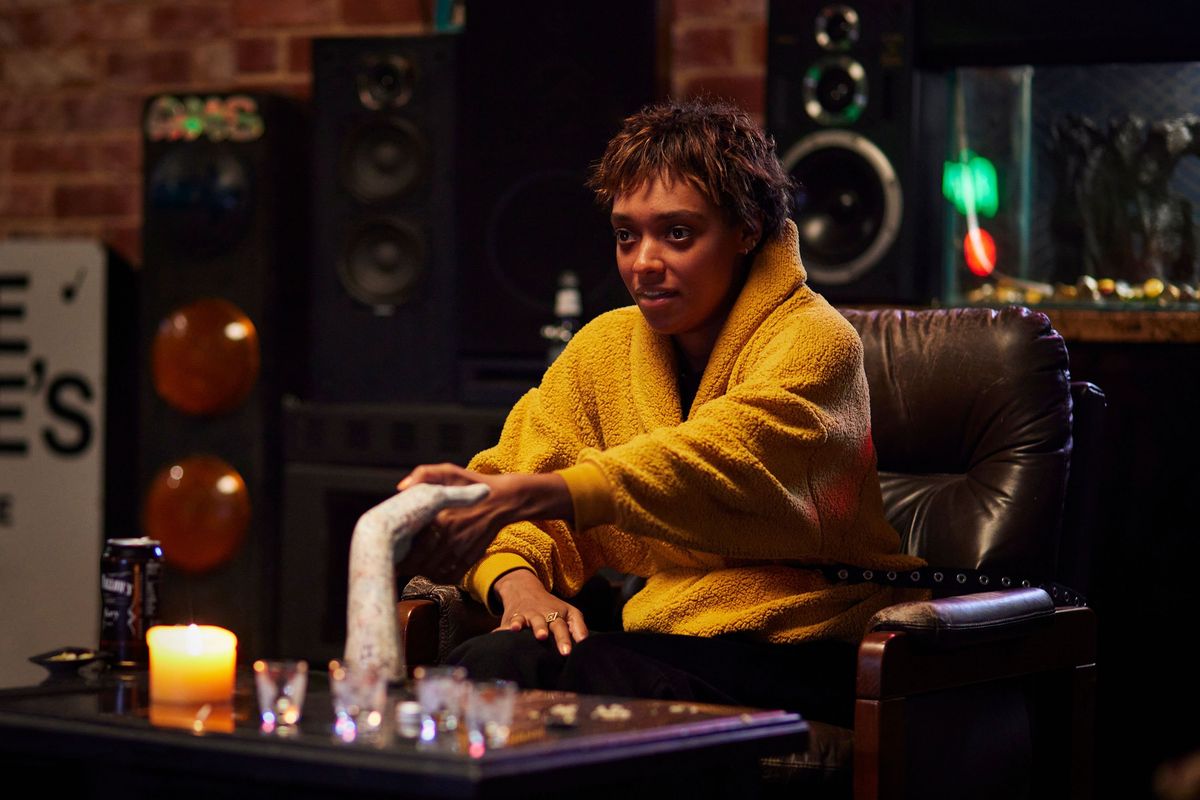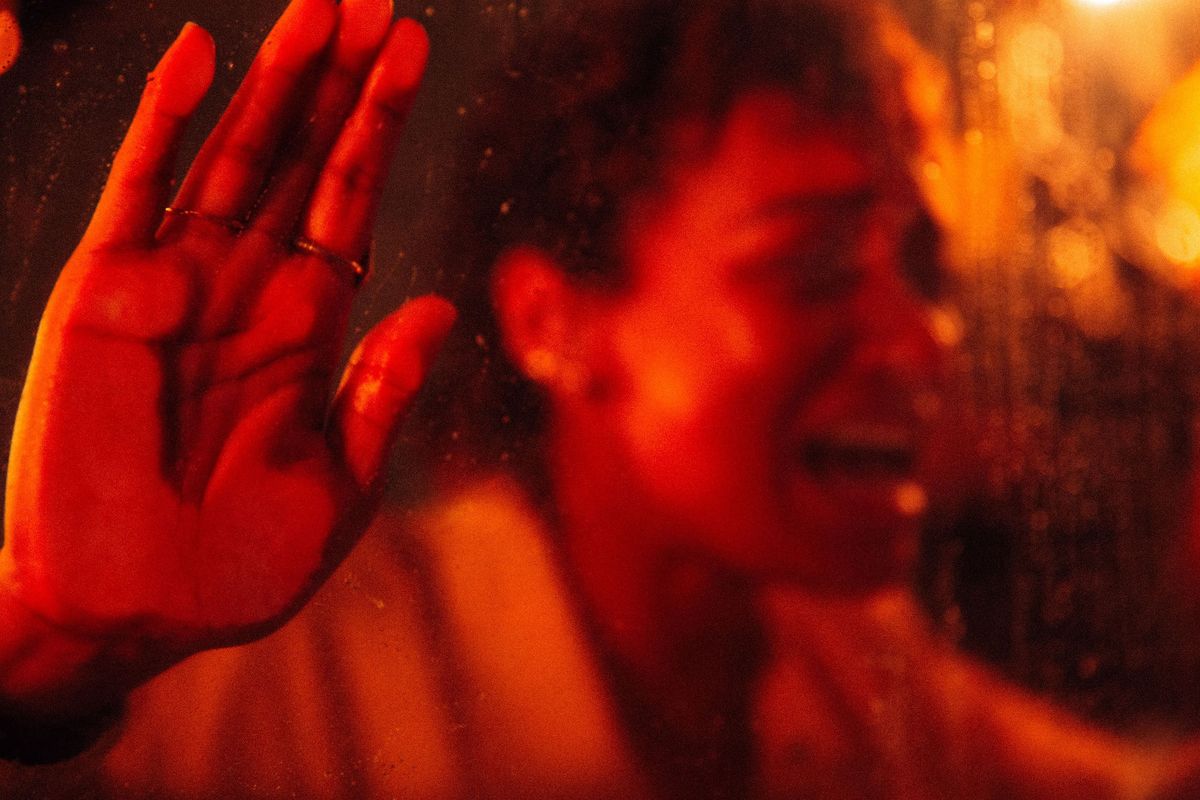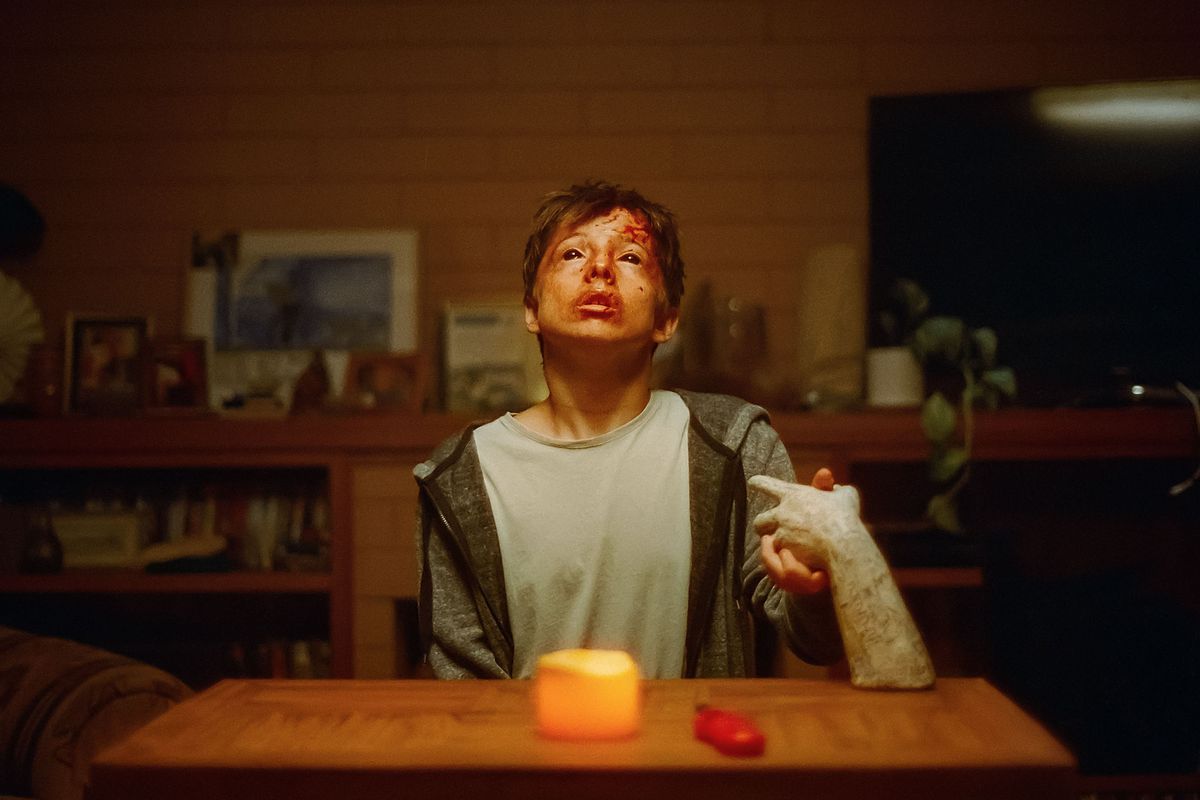Movie Review: A new star shines in dark and terrifying ‘Talk to Me’
Joe Bird as Riley in “Talk to Me.” (A24)
“Talk to me,” the kids say, grasping a plaster hand covered in graffiti, “I let you in.” In “Talk to Me,” the directorial debut of Australian twin brothers Danny and Michael Philippou (who go by RackaRacka on YouTube), this strange hand is the modern Oujia planchette, a tool to access spirits on the other side of the veil.
Everyone wants a turn with the hand, giddily allowing their friends to tie them to a chair, lighting a candle, chanting the incantation, inviting the spirits to take full-body possession. This paranormal ritual provides a harrowing and ultimately addictive head rush, and becomes the hottest new house party craze in town, spreading like wildfire on Snapchat with videos of teens seizing and choking, black pupils as large as quarters staring vacantly. They go again and again, giggling euphorically, smoking and chattering as they come down.
They can’t get enough, especially the lonely young Mia (Sophie Wilde), only two years out from losing her mother and desperate for connection. A goth pixie whose grief renders her judgment irrational, her boundaries porous, she finds empowerment in the surrender to spectral possession, not humiliation, like some of her friends. While her eyeballs are blacked out, she grins ominously and instructs her young pal Riley (Joe Bird) to “run,” an ominous warning that will all too soon come to pass.
Writers Danny Philippou and Bill Hinzman (the concept is by Daley Pearson) have co-created with Wilde an unforgettable character in Mia, who uncomfortably straddles the line between victim and villain. The character is indebted to those who came before her, like Sissy Spacek’s deeply vulnerable and scarily powerful Carrie in “Carrie,” or Linda Blair’s Regan in “The Exorcist.” In the same fashion, Mia is a character both empathetic and easily corruptible.
Mia’s earthy counterpart is her friend Jade (Alexandra Jensen), Riley’s older sister, and the voice of reason and intuition (continuing with the “Carrie” connection, consider Jade the Sue Snell of “Talk to Me”). When Mia allows Riley a turn with the hand that becomes violent and tragic, she’s compelled to dive deeper into the underworld to try and save him, and to try to talk to her mother, her grasp on reality becoming more and more tenuous. Her only tether is the furious Jade, who must also manage the grief and rage of her mother (Miranda Otto), who feels betrayed by Mia, a surrogate daughter.
“Talk to Me” is a relatively simple story with larger existential themes of grief, guilt and the multifaceted spiritual connection between mothers and daughters. The concept is deftly and artfully executed by the Philippou brothers, who don’t fall back on cheap jump scares, but rely on a dexterous cinematic style and grisly imagery to make a film that is truly dark and terrifying.
“Talk to Me” seemingly takes place entirely at night, adding to the atmosphere, but it never devolves into dull gray dreck. The silver-blueish color palette is enhanced with pops of neon and specific directional lighting; the moodiness creates an aesthetic logic that creates the space for the spirit realm to pour through. There’s also a contrasting relationship between the cinematic style of the film itself and the images captured on phone screens, which is a part of the possession experience. While the phone angles remain rather flat and rigid, there’s an athleticism and elasticity to cinematographer Aaron McLisky’s camera, which circles its victims, getting up close and personal, diving into the blackness of their eyes.
Holding the camera’s gaze with an undeniable presence is Wilde, in her star-making performance. “Talk to Me” isn’t just a splashy debut for the Philippou brothers, who prove their filmmaking chops in making the leap from the small screen to the big. It’s also an incredible introduction to a remarkable actress in a role that will undoubtedly prove to be an instant classic horror movie heroine.


